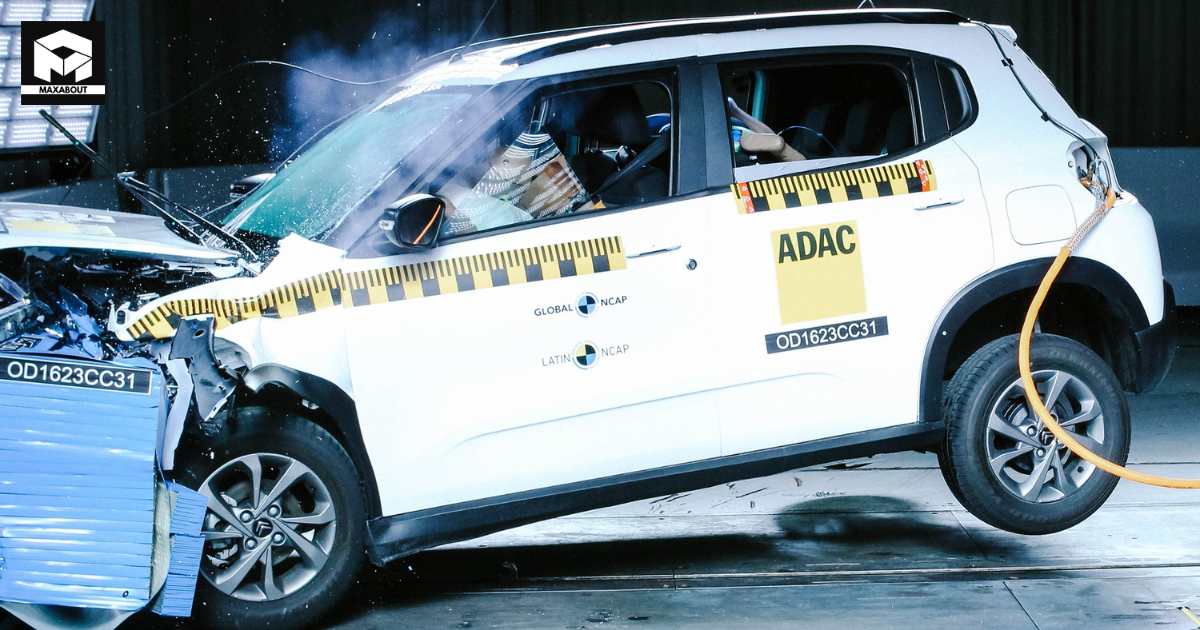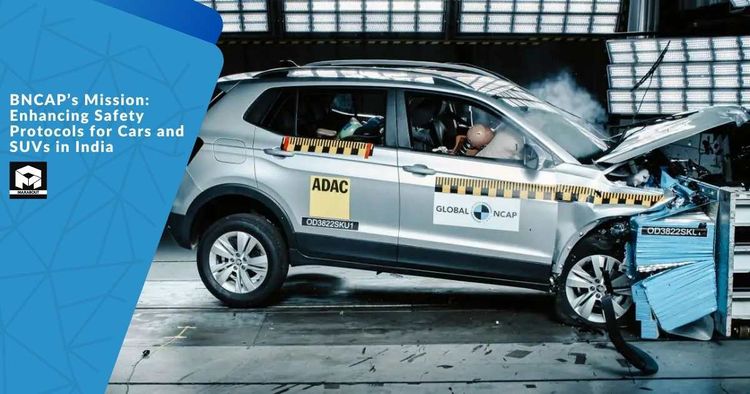August 22, 2023, marked a critical moment for the Indian automotive industry with the launch of the Bharat New Car Assessment Programme (BNCAP). This initiative by the government aimed to raise vehicle safety standards across the country making safety a most important thought for carmakers. The Bharat NCAP system, effective from October 1, 2023, introduced Indianised protocols (AIS 197) inspired by the UK's Global New Car Assessment Programme (GNCAP), setting new benchmarks for vehicle safety in India.
Raising the Safety Bar
Under the Bharat NCAP, vehicles undergo careful testing to receive star ratings based on their performance in frontal-offset, side-impact, and side-pole-impact crash tests. These tests conducted at varying speeds, assess both adult and child protection offered by the vehicle. To achieve a 4- or 5-star rating cars must meet strict safety standards, including the inclusion of six airbags as passive safety solutions. With BNCAP's rollout, car manufacturers now have to pack their vehicles with essential safety tech, making sure buyers know exactly what they are getting into when they hit the showroom floor.

Cost-Effective Testing
Nitin Gadkari, Union Minister for Road Transport and Highways shows the launch of BNCAP as a significant step towards aligning Indian automotive standards with global benchmarks. The cost-effective nature of BNCAP testing, priced at Rs. 60 lakh per vehicle compared to Rs. 2.5 crore at global centers, has opened avenues for independent testing bodies like ARAI, ICAT, and GARC to provide transparent and timely crash results.
Carmakers' Response to BNCAP
The implementation of BNCAP has adjusted the automotive landscape prompting car manufacturers to increase safety as a core value. Hyundai Motor India Limited (HMIL) and Maruti Suzuki India Limited (MSIL) have committed to standardizing six airbags across their model line-ups reflecting a proactive approach towards enhancing vehicle safety. While some concerns about cost implications in the entry-level segment persist, the market trend towards higher safety-rated cars indicates a growing consumer demand for advanced safety features.
Driver-Assist Technologies and Road Safety
In collaboration with BNCAP the automotive industry is observing the development of Advanced Driver-Assistance Systems (ADAS) as a critical tool for enhancing road safety. ADAS rigs up a car with tech-like sensors and cameras and searches the area to cut down on dangers and keep crashes at bay. Tata Motors for instance has integrated Level 2 ADAS features into its Harrier and Safari models, setting new standards for safety and innovation.
Driving Towards a Safer Future
With BNCAP hitting the scene, India's making a serious move to enhance vehicle and road safety, pushing it right into the spotlight of automotive design and buyer decisions. With BNCAP in the mix, Indian automakers are now embedding safety at the heart of their design philosophy nudging consumers to make it a top standard in their car-buying decisions. With Indian carmakers stepping up their game in safety tech and regulatory bodies tightening the control, we are on track for more secure roads and vehicles lighting the way to a safer future for all travelers.

